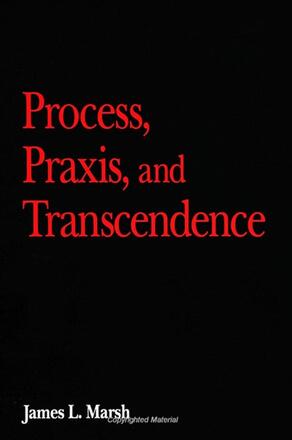
Process, Praxis, and Transcendence
Alternative formats available from:
Presents a North American philosophy of liberation that defends both metaphysics and philosophy of religion, and acts as a critique of neo-imperialism.
Description
Process, Praxis, and Transcendence is a North American philosophy of liberation that defends both metaphysics and philosophy of religion. The book moves from an existential phenomenology of the knowing and choosing subject through affirmation of a processive and liberating Christ to a critique and overcoming of neo-imperialism. Its ultimate theme explores what the appropriate theory and praxis of liberation is for those of us living "in the center of the empire" in North America and Western Europe.
James L. Marsh is Professor of Philosophy at Fordham University and the author of several books, including Critique, Action, and Liberation, also published by SUNY Press, and Post-Cartesian Meditations.
Reviews
"Marsh's book represents a superb critical and constructive response to a variety of postmodern alternatives. This book should be required reading for every student of religion who hopes to communicate transcendence relevantly in this postmodern world. " — Religious Studies Review
"The topic is very significant. Marsh deals with the question of metaphysics and religion and relates it to broader political and epistemological issues. In some ways, the issue of religion and metaphysics has been skirted by much contemporary philosophy, particularly continental philosophy and Marsh's book makes it critical. The author does a fascinating job of dialectically uniting polar opposites: faith and reason, poetry and rigorous argument, Lonergan and Whitehead, Whitehead and Marx, Kierkegaard and Marx, critical theory and faith, metaphysics and politics, rationality and radicalism, theory and praxis, social and economic liberation movements, and the list goes on. The book is so rich it will appeal to many constituencies. " — Michael D. Barber, St. Louis University
"By offering a systematic account à la Habermas of the way in which metaphysics factors into a critical social theory, Marsh has established a model that others writing on this topic will have to respond to. His account provides a framework that will greatly enable further scholarly research on this topic. His attempt to demonstrate that metaphysics is possible, and that without that possibility social and political action is impossible, is extremely insightful. This is a book that has the potential to make a tremendous impact. " — George Trey, Saint Mary's College